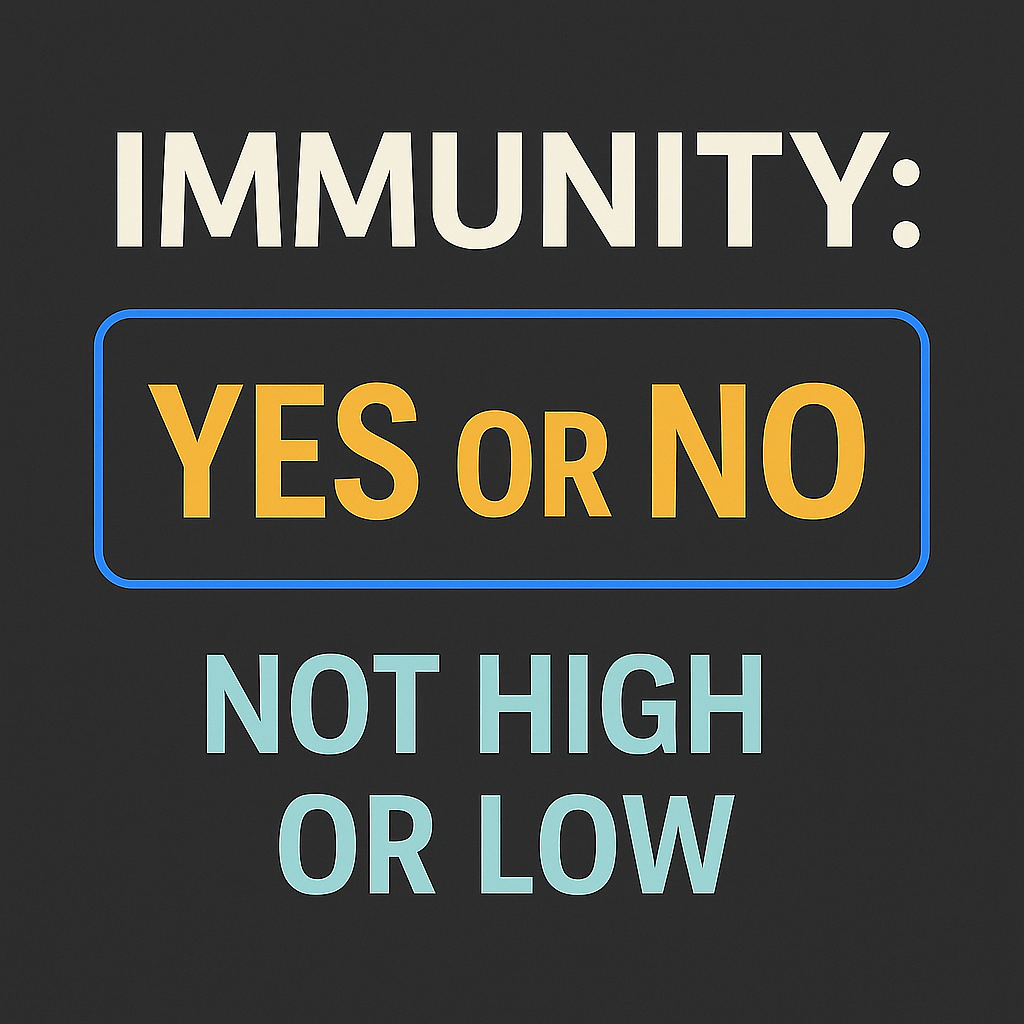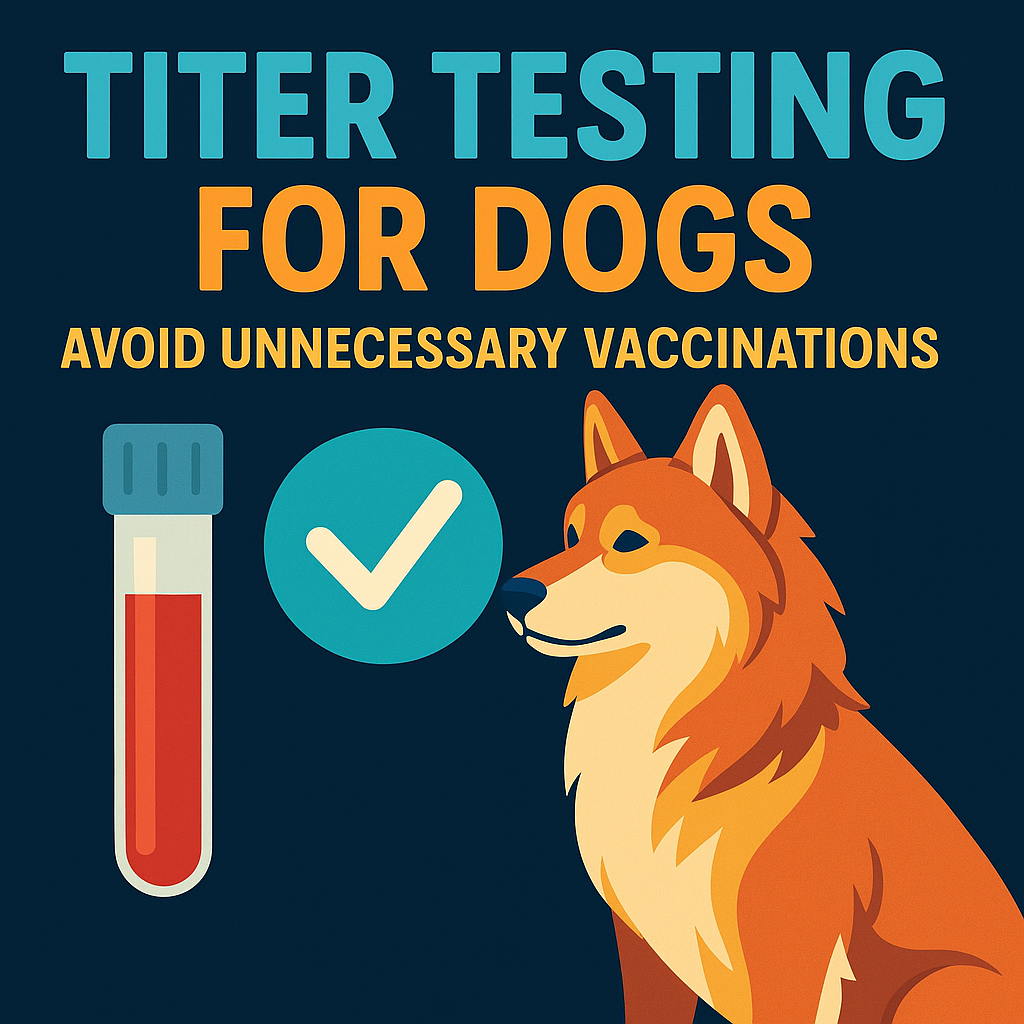What Is a Titer Test?
A titer test is a simple blood test that measures whether a dog has protective antibodies against specific diseases—most commonly:
- Canine Distemper Virus (CDV)
- Canine Parvovirus (CPV)
- Canine Adenovirus (CAV-2)
Titers don’t just guess at protection; they prove whether a dog’s immune system remembers how to fight off an infection. Rather than automatically revaccinating year after year, a titer lets you make an informed decision about whether additional vaccines are necessary—or not.
Why Titer Testing Is Safer Than Routine Boosters
Veterinary science has proven that core vaccines provide long-lasting immunity—often for the lifetime of the dog.Routine boosters, especially when given unnecessarily, increase the risk of:
- Allergies and chronic skin disease
- Autoimmune conditions
- Seizures and neurological disorders
- Organ failure and even certain cancers
Once a dog has established immunity, more vaccines don’t make them “more immune”—they only increase risk.
At the NAIDPP, we protect the Native American Indian Dog’s sensitive immune system by testing antibody levels instead of blindly repeating vaccines.

What Diseases Can Be Checked With Titers?
The most common and meaningful titer tests for dogs check:
| Disease | Importance |
| Canine Distemper Virus (CDV) | Highly contagious; usually fatal without immunity |
| Canine Parvovirus (CPV) | Severe gastrointestinal disease; particularly dangerous to puppies |
| Canine Adenovirus (CAV-2) | Protects against infectious hepatitis and contributes to kennel cough immunity |
Testing for these three core diseases ensures a dog has functional, protective immunity against the most serious viral threats.

How to Read Titer Results Correctly
Understanding Immunity: It’s Yes or No—Not a Spectrum
One of the most common misunderstandings about titer testing is the belief that:
“Low numbers mean weak immunity,” or “Higher numbers mean stronger protection.”
This is false.
Immunity is qualitative, not quantitative.
A dog is either immune or not immune.
A positive titer, even at a low number, confirms protection.
High vs Low Titer Numbers: What They Actually Mean
High titer numbers often indicate:
Recent vaccination
Recent natural exposure to the virus
A generalized inflammatory or immune activation event
Low titer numbers typically mean:
Protection has stabilized
No recent exposure or inflammatory activity
The immune system is at rest—not that it’s weak
A low positive titer = Full protection. No booster needed.
Unless a titer comes back completely negative, there is no benefit to revaccinating a protected dog.
How Often Should You Titer Test?
At the NAIDPP, we recommend the following general schedule:
One year after the initial core vaccinations (around 16–18 weeks old)
Every three years after that (unless required sooner for boarding, travel, or peace of mind)
In most cases, once a dog shows a stable positive titer after one year, immunity can be considered lifelong. Further testing is mostly for confirmation, not because immunity is expected to fade.
How Titer Testing Saves Lives (and Vet Bills)
Titer testing isn’t just a health choice—it’s an act of respect for your dog’s body.
Benefits include:
Avoiding vaccine injury
Preserving immune system strength
Preventing chronic inflammatory diseases
Saving money over endless unnecessary boosters
It also empowers you to make decisions based on facts, not fear.
How to Order a Titer Test
You can request a titer test through:
A holistic or integrative veterinarian
Open-minded conventional veterinarians
Certain national veterinary diagnostic labs that accept direct owner submissions
Always ask for titers for Distemper, Parvovirus, and Adenovirus-2. These three tests give the clearest picture of your dog’s core immunity.
Final Thoughts: A Healthier Future Starts with Smarter Choices
Choosing to titer test instead of automatically revaccinate isn’t “anti-vaccine”—it’s pro-science. It’s about trusting the natural brilliance of the immune system, guided by evidence, not outdated protocols.
At the NAIDPP, we honor the deep relationship between humans and dogs by preserving their health—naturally, intelligently, and respectfully.
Trust the dog. Trust the immune system. Trust the truth.

